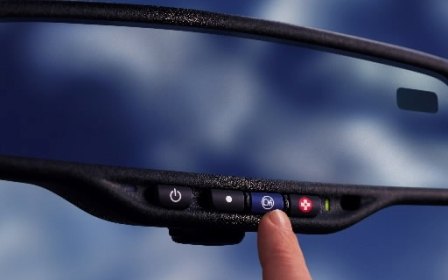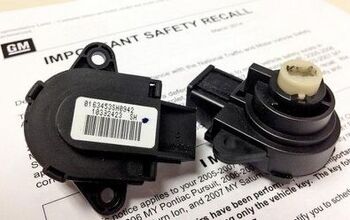Telematics For The [Insurance] People
Our own Jonathan Locker has wondered aloud whether big brother-like aspects of remotely-monitored telematics systems make them worthwhile. But even the Gadsen Flag crowd might be tempted to allow a spy in the trunk if it means saving up to 60 percent on car insurance. The Wall Street Journal documents how insurance companies like Progressive and GMAC Insurance are using telematics to determine customers driving styles– and offer discounts or surcharges accordingly. The Progressive self-reported (non-GPS) mileage program is currently offered in Michigan, Minnesota and Oregon. A staggering 34 percent of customers in those markets have been using the system to save money since 2004. GMAC's program is tied to GM's OnStar system; it costs $199 to $299 after a 12 month free introductory period. But with up to 54 percent in "good driver" discounts available, GMAC reports a 200 percent rise in subscriptions since last year. But these discounts are only available if telematics tell your insurance company that you use your gas and brake pedals within their "safe use" parameters. Brake too hard, drive to many miles, or drag race someone at a stop light and you could be looking at up to nine percent surcharges.
More by Edward Niedermeyer


































Comments
Join the conversation
Obviously only certain drivers will take advantage of this. The end game is getting everyone to be FORCED to take part. Once a certain penetration (appropriate word) has been achieved legislation can be introduced to make it so. See "The UK" for ideas. Insurance companies play the risk game very well and when they can eliminate an unknown, especially in their favor, they will. If insurance were optional I would have no problem with it but mandated insurance coverage means by law you are someone's customer. Now the insurance companies have your sack in their hands. From here it is a small step to automatically ticketing a driver for speeding, tailgating , touching the crosswalk at a red light, and the ultimate control of limiting vehicle operation during certain situations. With GPS enabled computer tracking all this and more is possible. If you think it can't happen think again. Plenty of money and hookers are spent in Washington passing laws to fleece 300 million people, this will be no exception. Too bad cars were not around in 1791 because I'm sure the Constitution would have included at least one right to travel unmolested about the country.
"The lack of response on this topic is shocking (unless they are still in shock from today’s “activist” Supreme Court decisions)." Activist? What is activist about restoring/reaffirming our 2nd Amendment rights? Activist would be legislating from the bench, finding "rights" where none existed before. This decision is a return to sanity. Back to topic, I agree this is a bad situation if mandated (and I work for an insurance company). Monitoring would be a good thing if you think you could save some money over the standard rate, otherwise you wouldn't want it.
psarhjinian, I know that OnStar was available on some Subaru models a few years back when GM owned a percentage of the company. No more. I went to the OnStar website before my first post, and if it is currently available on anything besides GM products, I couldn't find it there.
this post is pretty intense! I think people are a little to paranoid. but to each his own, see I work for an AD agency that does work for OnStar ... and OnStar is pretty serious about these sorts of things. This link is kinda long, but it will explain everything: http://www.onstar.com/us_english/jsp/privacy_policy.jsp”